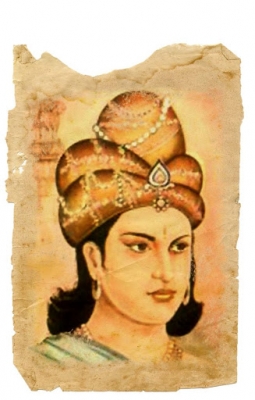
Following his successful but bloody conquest of the Kalinga country on the east coast, Ashoka renounced armed conquest and adopted a policy that he called “conquest by dharma” (i.e., by principles of right life).
The empire he and his family built did not last even 50 years after his death. Although he was the greatest of the kings of one of the largest and most powerful empires in antiquity, his name was lost to history until he was identified by the British scholar and orientalist James Prinsep (l. 1799-1840 CE) in 1837 CE. Since then, Ashoka has come to be recognized as one of the most fascinating ancient monarchs for his decision to renounce war, his insistence on religious tolerance, and his peaceful efforts in establishing Buddhism as a major world religion.
When Ashoka was around the age of 18, he was sent from the capital city of Pataliputra to Takshashila (Taxila) to put down a revolt. According to one legend, Bindusara provided his son with an army but no weapons; the weapons were provided later by supernatural means. This same legend claims that Ashoka was merciful to the people who lay down their arms upon his arrival. No historical account survives of Ashoka’s campaign at Taxila; it is accepted as historical fact based on suggestions from inscriptions and place names but the details are unknown.
The Kingdom of Kalinga was south of Pataliputra on the coast and enjoyed considerable wealth through trade. The Mauryan Empire surrounded Kalinga and the two polities evidently prospered commercially from interaction. What prompted the Kalinga campaign is unknown but, in c. 260 BCE, Ashoka invaded the kingdom, slaughtering 100,000 inhabitants, deporting 150,000 more, and leaving thousands of others to die of disease and famine.
Ashoka then renounced war and embraced Buddhism but this was not the sudden conversion it is usually given as but rather a gradual acceptance of Buddha’s teachings which he may, or may not, have already been acquainted with. It is entirely possible that Ashoka could have been aware of Buddha’s message before Kalinga and simply not taken it to heart, not allowed it to in any way alter his behavior. This same paradigm has been seen in plenty of people – famous kings and generals or those whose names will never be remembered – who claim to belong to a certain faith while regularly ignoring its most fundamental vision.
Picture Credit : Google

